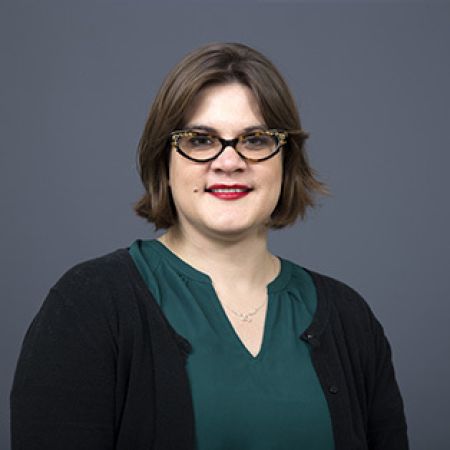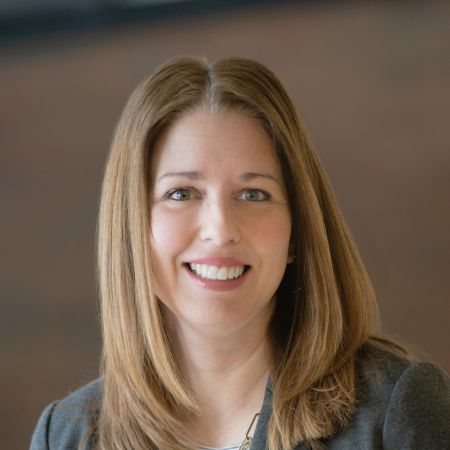
Academic Advising Certificate Program
The SUNY Center for Professional Development and the SUNY Academic Advising Community of Practice have developed the framework for an Academic Advising Certificate Program. The Academic Advising Certificate program serves as a cornerstone for enhancing the quality of academic advising services, promoting student success, and advancing the professionalism of the academic advising field within higher education. It is grounded in a developmental and appreciative approach to guiding and empowering students on their educational (academic, career, financial, personal, and transfer) pathways and journeys. The program equips advisors to support a diverse range of students, including those from underrepresented or marginalized communities, nontraditional students, and international students. The program also enables advisors to be updated on emerging trends, research findings, and innovative practices, continually enhancing their effectiveness in supporting students. Furthermore, it enhances career opportunities within SUNY, demonstrating a commitment to the field and making advisors more competitive for promotions or advancement within their institutions. The overarching goal of the program is to contribute to a community of practice of SUNY academic advisors who support each other and advocate for advising across the system.
Learning Objectives:
- Address students’ academic, career, financial, personal, and transfer needs through a holistic, developmental, and appreciative advising approach.
- Effectively support the students on their campus, including those from historically underrepresented communities, ensuring equitable access to advising resources and support.
- Leverage the latest trends, research findings, and innovative practices in academic advising.
- Contribute to a network of SUNY advisors who collaborate, share best practices, and advocate for the importance of academic advising across the SUNY system, fostering a culture of continuous improvement and mutual support.
Target Audience
- Academic Advisors
- Faculty Advisors
- Concierge and Success Coaches
- EOP Personnel Student Affairs Staff
Program Completion Requirements
To receive an overall completion certificate, participants must complete all three courses which contain various learning activities delivered in an online, asynchronous format using the SUNY Center for Professional Development learning management system (LMS). It is recommended that courses be taken in order. Participants should be prepared to spend approximately 2 – 4 hours of course work each week.
Course Details
Course 1: Foundations of Academic Advising
This course explores the principles and practices of academic advising, emphasizing developmental, appreciative, holistic, and transactional/prescriptive approaches while highlighting the profession’s shift towards more student-centered models. It integrates NACADA’s Core Values and the concept of advising as teaching to bridge theory and practice for enhanced student success. Additionally, the course covers career and academic planning, including problem-solving, decision-making, and goal setting, with a focus on supporting unique student populations such as first-generation, nontraditional, and transfer students.
At the completion of this course, all participants should be able to:
- Understand the various approaches to advising, including Developmental, Appreciative, Holistic, and Transactional/Prescriptive approaches (and why the profession is moving away from certain models).
- Articulate NACADA’s Core Values of Academic Advising.
- Facilitate problem-solving, decision-making, and goal-setting processes.
- Understand career planning basics and campus career services/tools.
- Gain an introduction to advising for unique populations: first-generation, nontraditional, transfer, and more.
Course 2: Building Advising Relationships and Pathways
This course delves into the fundamentals of communication in academic advising, focusing on emotional and cultural intelligence to establish rapport and create meaningful relationships. It covers the use of advising syllabi to set expectations, crafting effective messages across various platforms, and assisting students in navigating institutional systems. Additionally, the course addresses diversity and inclusion, exploring intersectionality, tailoring strategies for specific populations, and advocating for students through institutional barriers.
At the completion of this course, all participants should be able to:
- Incorporate Emotional Intelligence and Cultural Intelligence in practice.
- Understand how to establish rapport and create meaningful advising relationships.
- Develop strategies to help students navigate institutional systems and resources.
- Know how to address intersectionality in advising sessions.
- Understand how to tailor strategies for specific populations. (Introduction only)
- Advocate for and guide students through institutional barriers.
Course 3: Sustaining Excellence and Professional Growth as an Advisor
This course equips participants with applied advising skills through role-playing scenarios, case study analysis, and the development of real-world solutions, culminating in the creation of a versatile advising toolkit. It covers the ethical foundations of advising, including FERPA, HIPAA, Title IX, and Title VI, ensuring advisors can navigate confidentiality and legal requirements. Additionally, the course emphasizes professional growth and self-care, staying current with advising trends, and building a supportive community through engagement with professional networks and peer learning.
At the completion of this course, all participants should be able to:
- Develop solutions for real-world advising challenges.
- Create an advising toolkit for use in diverse advising situations.
- Understand FERPA essentials and how to navigate HIPAA, Title IX, and Title VI in advising scenarios.
- Develop a personal professional growth plan.
- Prioritize self-care and boundary-setting to prevent burnout.
- Leverage campus resources like EAP and professional organizations (e.g., NACADA, NYSTAA) to engage with scholarship and professional development opportunities.
Meet the Instructors

Andrew Buchmann
Andrew Buchmann is a Senior Academic Success Advisor in the Advisement Center at the State University of New York at Oswego, serving students from Communication Studies and Cinema and Screen Studies. Having earned both his B.A. and M.S from SUNY Oswego, Andrew is a lifelong learner dedicated to student success. In addition to advising a caseload of students, Andrew is the Starfish App Admin for the campus and the co-facilitator for the SUNY Early Alerts Community of Practice. Andrew also serves as a course instructor for GST 104 Experiential Learning in College, EDU 104 Strategy Instruction in the disciplines, and his personally developed first-year signature course GST 198 This is the Way- Life Lessons from a Galaxy Far, Far Away. Outside of his vocation, he enjoys all things Star Wars, Disney Lorcana, LoL Esports, and adventures with his partner Leslie.

David Runge
David Runge is an Academic Success Advisor at the State University of New York, College at Oswego. He serves as a primary advisor for a caseload of new first year students, and academic probation advisor for those working towards academic recovery. He has experience working with international students and transfer student populations as well. Alongside his advising work, he is also a course instructor for various academic success and transition based courses. His research interests focus on exploring the use of tabletop games, particularly Dungeons & Dragons, as a tool for education and learning. Prior to his current role, David also served as a Residence Hall Director at SUNY Oswego, and as an Academic Advisor and the Coordinator of COR 101 (first year seminar) at SUNY Cortland.

Kathryn Fore
Kathryn Fore is a senior academic advisor and the Honors College advising coordinator in the Academic Support Center at UAlbany. She has bachelor’s degrees in English lit and Psychology and Social Behavior from UC Irvine, and an MA/MPHIL/PHD in English Literature from Columbia. She began her advising career in 2015 at CCNY, before moving to SUNY Purchase and then to UAlbany. She has hosted several NACADA and SUNY Success seminars on academic advising best practices, and has over a decade of teaching first year writing and first year experience programs.

Sally Dingee
Sally Dingee is the Associate Director of Student Success & Advising Services at Monroe Community College. With over twenty years of academic advising experience at MCC, Sally has made significant contributions to the college in student-focused initiatives and advising administration. She has extensive experience in academic advisor professional learning and career development. She holds a bachelor’s degree in Communication Studies from SUNY Brockport and a master’s degree in Higher Education from Syracuse University. She is a certified Higher Education Mental Health First Aid trainer and adjunct faculty member at MCC for First Year Experience courses.
Course Pricing
CPD Member
$300 Per Course
Discounted course pricing when registering for three courses at one time
$260 per course
Non-CPD Member
$350 Per Course
Discounted course pricing when registering for three courses at one time
$310 per course
Non-SUNY
$400 Per Course
Discounted course pricing when registering for three courses at one time
$360 per course
Group Discounts Available
Additional discounts are available to groups of the following size attending the same program:
- 5-9 people = 10% discount
- 10-19 people = 15% discount
- 20-29 people = 20% discount
Please send your request to cpdinfo@suny.edu at least 30 days prior to the start of the course/program.
How to Pay
Available payment methods are:
- Credit Card (Mastercard or Visa)
- CPD General Points
- Campus Check
- Journal Transfer
FULL payment is required 30 days from the date of registration.
CPD Points: Check if your campus is a member. Prior approval is required. If points are denied, the registrant is responsible for the payment.
Journal Transfer (State Operated campuses only): An account number with authorizing signature for Journal Transfers is required within 48 hours. You must print and return the invoice that is included with the registration confirmation email.
Registration
2025 Course Dates
- Course 1: Foundations of Academic Advising May 20 – June 30, 2025
- Course 2: Advising Relationships and Pathways July 1 – August 11, 2025
- Course 3: Sustaining Excellence and Professional Growth as an Advisor Sept 23 – Nov 3, 2025
Contact Us
For programming questions, please contact Jennifer Snyder, Student Success Program Manager at jennifer.snyder@suny.edu. For registration questions, please contact Kae Harrison, SUNY CPD Program Coordinator at kae.harrison@suny.edu.